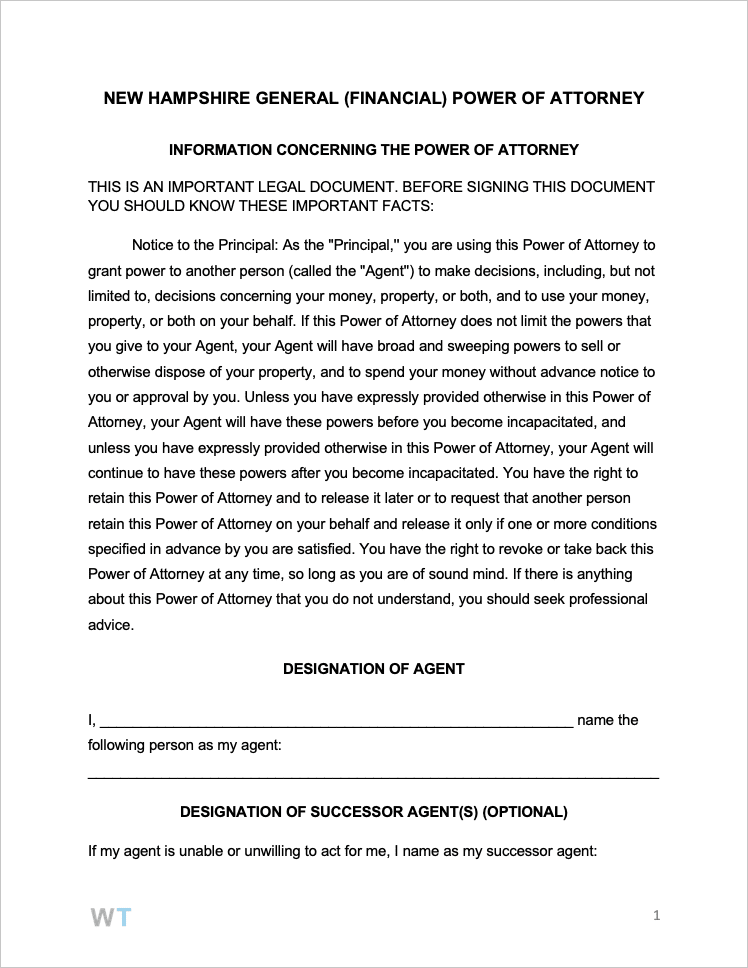New Hampshire General Power of Attorney Form
The New Hampshire General Power of Attorney is a personal legal document used for allocating temporary powers to a person called the “agent”, giving them the right to act on behalf of another person called the “principal”. The form is completed and signed by the principal at their own discretion. The principal has full control of the type(s) of powers they wish to provide their agent. Such powers can include the right to manage real estate, sell personal property, manage bank accounts, and more. Certain powers need to be specifically mentioned in the POA for the agent to be able to act on them. These powers can be found at § 564-E:201.
This form is the non-durable version for NH. This means it is not for long-term estate planning, but for granting an agent power for up to one (1) year (or longer in some cases). Should you need a POA that doesn’t terminate if the principal can’t communicate (“incapacitated”), the Durable Power of Attorney should be used.
Laws: Title LVI-Chapter 564-E
Signing requirements (§ 564-E:105(a)): To comply with state law, you must have your signature notarized.
Disclosure, as required by § 564-E:105:
INFORMATION CONCERNING THE POWER OF ATTORNEY
THIS IS AN IMPORTANT LEGAL DOCUMENT. BEFORE SIGNING THIS DOCUMENT YOU SHOULD KNOW THESE IMPORTANT FACTS.Notice to the Principal: As the “Principal,” you are using this Power of Attorney to grant power to another person (called the “Agent”) to make decisions, including, but not limited to, decisions concerning your money, property, or both, and to use your money, property, or both on your behalf. If this Power of Attorney does not limit the powers that you give to your Agent, your Agent will have broad and sweeping powers to sell or otherwise dispose of your property, and to spend your money without advance notice to you or approval by you. Unless you have expressly provided otherwise in this Power of Attorney, your Agent will have these powers before you become incapacitated, and unless you have expressly provided otherwise in this Power of Attorney, your Agent will continue to have these powers after you become incapacitated. You have the right to retain this Power of Attorney and to release it later or to request that another person retain this Power of Attorney on your behalf and release it only if one or more conditions specified in advance by you are satisfied. You have the right to revoke or take back this Power of Attorney at any time, so long as you are of sound mind. If there is anything about this Power of Attorney that you do not understand, you should seek professional advice.
